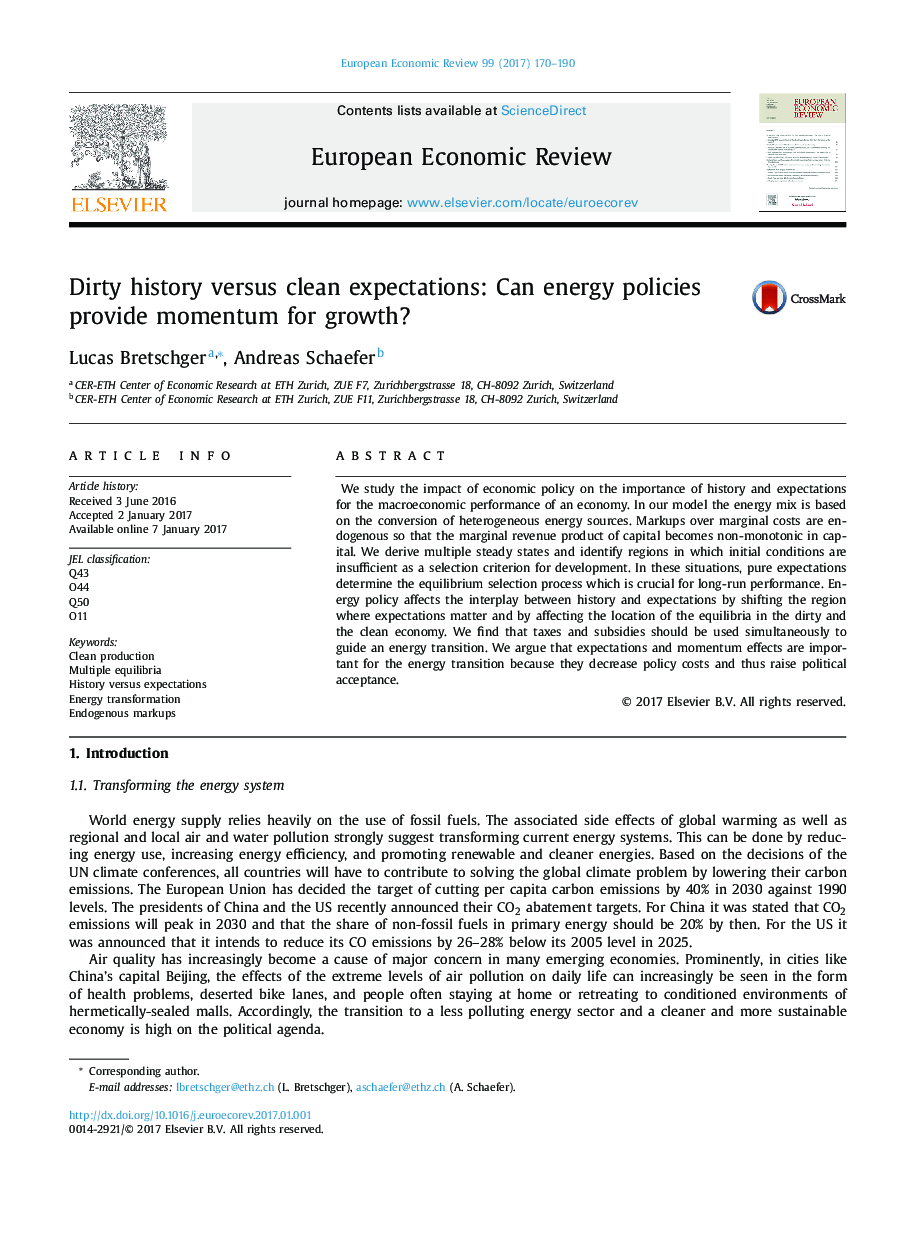| Article ID | Journal | Published Year | Pages | File Type |
|---|---|---|---|---|
| 5066266 | European Economic Review | 2017 | 21 Pages |
We study the impact of economic policy on the importance of history and expectations for the macroeconomic performance of an economy. In our model the energy mix is based on the conversion of heterogeneous energy sources. Markups over marginal costs are endogenous so that the marginal revenue product of capital becomes non-monotonic in capital. We derive multiple steady states and identify regions in which initial conditions are insufficient as a selection criterion for development. In these situations, pure expectations determine the equilibrium selection process which is crucial for long-run performance. Energy policy affects the interplay between history and expectations by shifting the region where expectations matter and by affecting the location of the equilibria in the dirty and the clean economy. We find that taxes and subsidies should be used simultaneously to guide an energy transition. We argue that expectations and momentum effects are important for the energy transition because they decrease policy costs and thus raise political acceptance.
